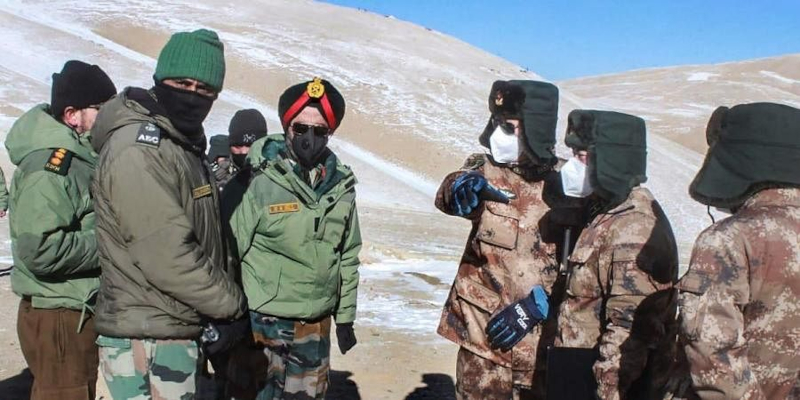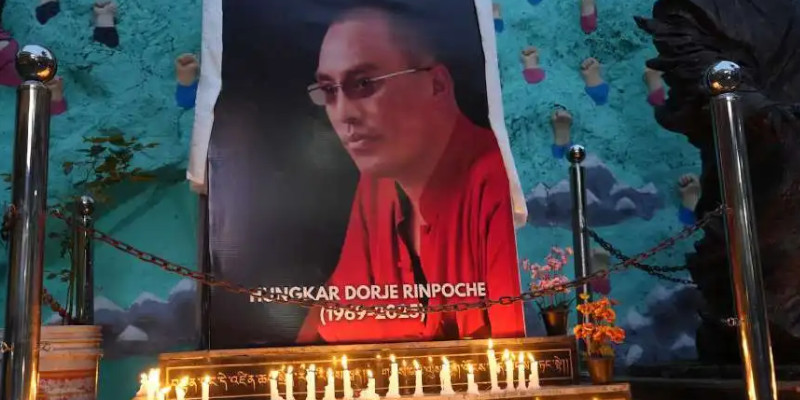Dharamshala, 4th August: The Indian and Chinese military hierarchy convened under the direction of Corps Commanders and decided to withdraw from Gogra (Patrolling Point 17A). “Both Corp Commanders agreed to disengage from Gogra, but the final approval will come from both governments’ political hierarchies,” a senior official stated.
At Gogra, a platoon-sized force is stationed in standoff mode. Soldiers will retreat to a preset ground position once the go-ahead is given, leaving a buffer zone in between, similar to the buffer zone on the North Bank. The delegation from the Indian Army and Maj Gen Liu Lin, Commander of the Chinese PLA’s South Xinjian Military District, met for the 12th time on Saturday, led by Lt Gen PGK Menon, Corps Commander (14 Crops).
Both India and China had already disengaged their troops, as well as their weaponry and equipment, including tanks, artillery guns, and mechanized vehicles, and constructed buffer zones on the north and south banks of the Pangong Tso in an effort to reduce tensions.
The Chinese troops on the North Bank had retreated north of Finger 8, while Indian troops retreated at Finger 3. The area in between will serve as a buffer zone, with both sides putting a temporary halt to patrolling.
Also, the troops were disengaged from Galwan (Patrolling Point 14), which had been the scene of terrible clashes, with men from both armies losing their lives. As previously reported by the TNIE, personnel on the ground stated that the disengagement would occur at both Gogra and Hotspring (Patrolling Point 15), but that the decision might be made at either location.
Following the fighting at Finger 4 in May 2020, the Chinese rushed in forces and set up a standoff deployment on both banks of the Pangong Tso, Hotspring, Gogra, and Galwan. At Depsang and Demchok, there was also a standoff.
The goal of the discussions rallies has been to get the deployment level back to where it was before May 2020. The Chinese are marching in four divisions along the Eastern Ladakh Line of Actual Control, mirroring the deployments on both sides. Four divisions of the Indian army have also been mobilized and stationed to oppose any movement and to handle the standoff deployment.
Aside from talks at various levels, the hotline was heavily used. There have been frantic conversations, with up to five hotline calls each day in the past. An official stated, “The Hot Line talks have been 1450 times between May 2020 and July.” On Sunday, a new hotline, the sixth so far, was created between the Indian Army in Kongra La, North Sikkim, and the Tibetan Autonomous Region’s PLA in Khamba Dzong to foster the atmosphere of confidence and cordial relations along the border.







Leave a Reply